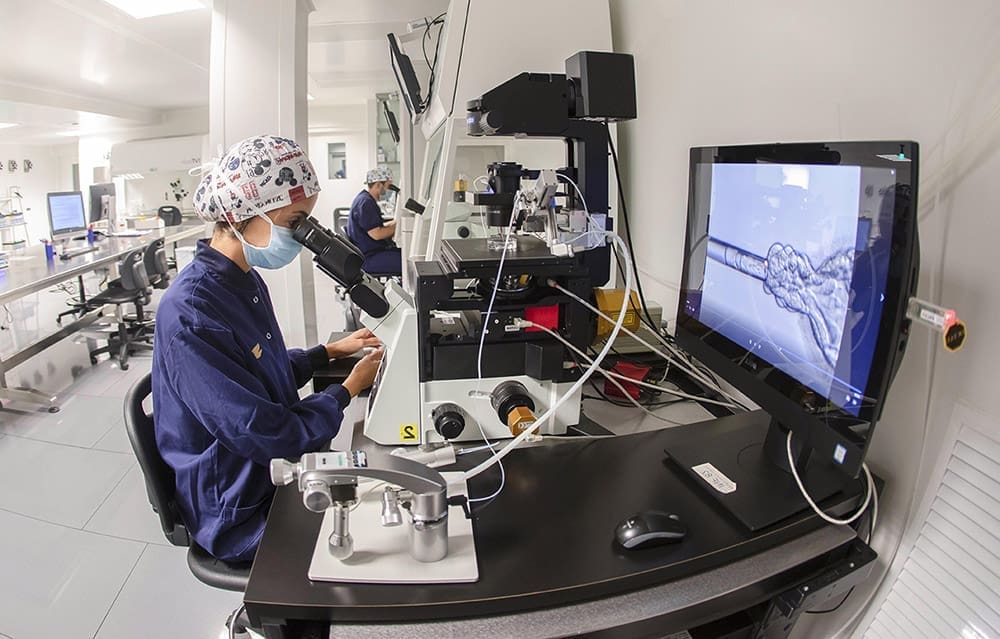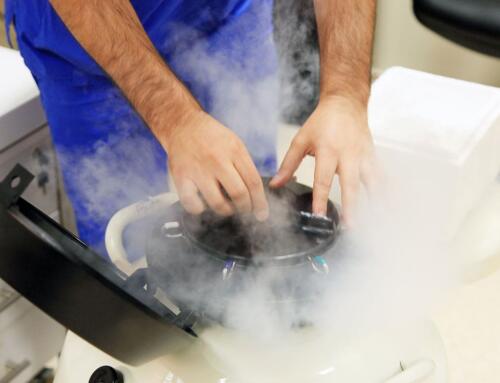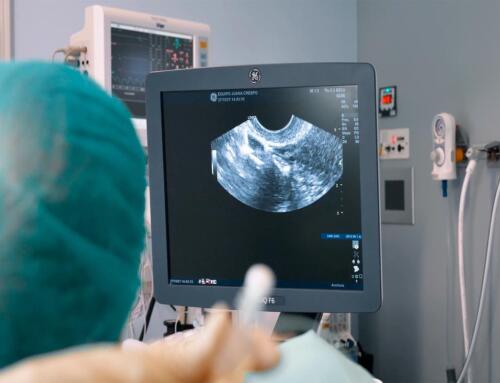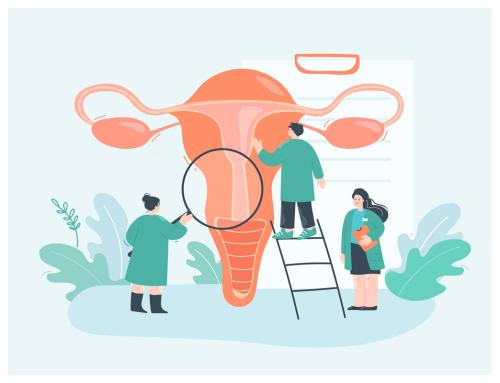.
There are more than 6,000 different rare diseases that affect the physical, mental and sensory abilities of those who suffer from them. Of these, it is estimated that 80% are genetic. Genetics therefore, plays an essential role in the possible prevention of these diseases. And it is here where assisted reproduction offers an enormous advantage in the possibility of detecting and preventing the transmission of genetic diseases.
Precisely to give visibility to this type of disease and to the advances in research that are made every year, February 28th is celebrated as World Rare Disease Day.
If you, your partner or your families are affected by a genetic disease, assisted reproduction offers you the opportunity to avoid transmitting the genetic disease that affects you to your future child.
What are hereditary rare diseases?
According to the Spanish Federation of Rare Diseases, FEDER:
A disease is considered rare when it affects a limited number of the total population, defined in Europe as less than 5 per 10,000 inhabitants.
In Spain alone it is estimated that there are more than three million people affected by one of these diseases. Although the probabilities vary in each case, the percentage of transmission to children is very high and these, in turn, can suffer from them and show symptoms in some cases. In other cases, they do not have the disease, but they can transmit it to their descendants. We then speak of rare hereditary diseases.
How to avoid genetic diseases in an IVF procedure
The Preimplantation Genetic Test (PGT) is the key to detecting and avoiding hereditary diseases in IVF treatment. This test, previously called Preimplantation Genetic Diagnosis (PGD), allows us to select only healthy embryos before transferring them to the uterus and pregnancy occurs.
The Preimplantation Genetic Test thus becomes the best reproductive option to ensure the birth of a child free of genetic diseases.
It is a delicate process that allows the genetic characteristics of the embryos obtained in an in vitro fertilization (IVF) treatment to be studied.
For this purpose, embryos at the blastocyst stage (day 5-6 of development) are handled with great care. A small biopsy is performed to extract between 6 and 8 cells from each embryo. This sample is then analyzed in order to detect possible anomalies.
In this way we will be able to identify the “sick” embryos and transfer to the maternal uterus only those that we consider “healthy”.
Requirements to perform a Preimplantation Genetic Test
If you are thinking about the convenience of performing a PGT, it is important for you to know that this test cannot be performed if there is no medical justification indicating that it is convenient to do so. It is not a test that you can perform voluntarily, but by medical recommendation.
Patients who request to undergo the Preimplantation Genetic Test in Juana Crespo, do so when:
- The patient has suffered repeated miscarriages.
- One of the parents (or relatives of the parents) suffers from a genetic disease.
- There are altered karyotypes in any of the members of the couple.
- Previous offspring are affected. That is, when the couple has already had a child with a genetic disease; possibly because the couple shares a genetic mutation that does not manifest itself in them. This case can be avoided previously (before having children) by doing a carrier test or genetic compatibility test. This test, unlike the TGP, is not performed on the embryos, but on the parents, by taking a blood or saliva sample.
In short, thanks to the Preimplantational Genetic Test, we will prevent the child from being born with the disease and, in addition, we will prevent the disease from being inherited in future generations. However, there are some minimum criteria that couples carrying a risk disease must fulfill in order to carry out a PGT:
- Have a genetic report specifying the genetic situation of the couple or the family. The disease to be studied must be hereditary, of early onset, which generates disability. In addition, it must be a disease for which no curative treatment is available in the short term or which seriously compromises the quality of life.
- There must be a known genetic risk of transmission of the altered phenotype to offspring.
- The diagnosis must be possible for the disease in question that is to be avoided.
What genetic diseases can be avoided in IVF?
Myotonic dystrophy, polycystic kidney disease, cystic fibrosis, Charcot disease, Huntington’s disease, ataxias, hemophilia… and so on up to more than two hundred are the rare hereditary diseases that we can detect in the Juana Crespo laboratory.
Depending on the hereditary disease to be studied, we have three types of preimplantation genetic tests:
1- Genetic test for Aneuploidies or Chromosomal Alterations (TGP-A).
This test is indicated for couples with repeated implantation failures or repeated miscarriages, in women with maternal age over 38 years, with altered karyotypes of one or both parents.
It is also indicated for couples who have had previous conceptions with genetic diseases. This is the case of Down’s syndrome, Edwards’ syndrome or other chromosomopathies where the embryo may have more or less chromosomes.
2- Preimplantation genetic test for the detection of structural alterations (PGT-SR).
This technique is aimed at couples who are carriers of chromosomal alterations. To find out, we will perform a karyotype, that is, a study of the structure and number of chromosomes that both members of the couple have.
Next, the TGP-SR will allow us to detect the presence of abnormal chromosomes in the embryos, i.e. chromosomes that have suffered a breakage or incorrect union of several segments.
Normally, these structural chromosomal anomalies (translocations, deletions, duplications, insertions, ringing and inversions) do not have consequences for the health of the carrier of the alteration, but they can give rise to affected offspring.
3- Preimplantation genetic test for monogenic diseases (PGT-M)
This test makes it possible to detect in the embryo the alteration or mutation of a gene that would cause a monogenic disease.
TGP-M is performed in couples with a family history of hereditary diseases caused by mutations in a given gene. These couples must have a high risk of transmitting this pathology to their offspring, either because one of the parents is diagnosed or because both are healthy carriers of the same genetic condition.
They can be diseases with dominant, recessive or X-linked inheritance. Among these diseases we can find Huntington’s disease, cystic fibrosis, polycystic kidney disease, Fragile X syndrome, hemophilia A…
Does TGP affect the success of IVF?
Many couples fear that by manipulating their embryos they could be damaged and would not be able to get pregnant.
However, it is essential to understand that embryo biopsy is a necessary technique to carry out the Preimplantation Genetic Test. It is a very delicate process that requires highly qualified and experienced professionals in this particular technique. In this way, we will develop the process without compromising the viability of the embryo.
In addition to highly experienced professionals, in the Juana Crespo Team laboratory, we have pioneering facilities and state-of-the-art equipment designed to guarantee an optimal culture system. All this with the aim of ensuring a high rate of embryo formation at the blastocyst stage, as well as a good vitrification program that guarantees their survival after freezing.
In our laboratory, the survival of embryos to biopsy and freezing by vitrification is 99%. Our team of professionals and the culture system we follow ensure the success of the technique and, above all, prevent our patients from suffering pregnancy interruptions due to the existence of serious hereditary diseases.
If your family or your partner’s family knows about the existence of diseases that you can transfer to your future child, in Juana Crespo we can help you. Not only can we detect the embryos that are transferable and free of that disease, but you will also have the personalized advice of our geneticists.
We have very experienced professionals in our laboratory capable of performing the embryo biopsy without harming the chances of embryo implantation.
Ask us your questions or book your first appointment at 961 042 557 or through our email: info@juanacrespo.es
.
















